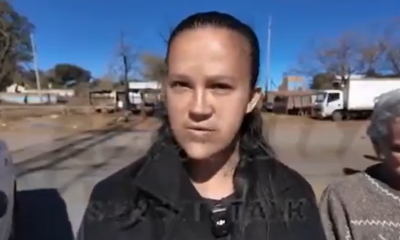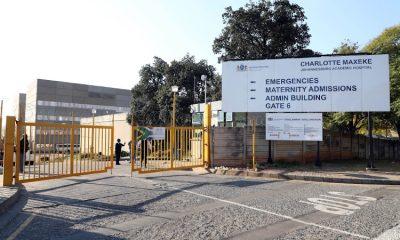News
Gauteng Clinics in Turmoil as Vigilante Groups Block Patients from Care

Across Gauteng, a troubling pattern has emerged at public clinics. People seeking medical help are being stopped at the gate by groups who claim to be checking documents and controlling access. What began as isolated intimidation has grown into a widespread barrier that now affects pregnant women, infants, chronic patients, and anyone who cannot immediately produce a South African identity document. It has turned ordinary clinics into places of fear, where people must choose between risking confrontation or abandoning medical care altogether.
This week, three major civil society organisations took the matter to the Gauteng High Court in Johannesburg. Médecins Sans Frontières, the Treatment Action Campaign, and Kopanang Africa Against Xenophobia, represented by Section27, have asked the court to intervene urgently. They want an order forcing the state to stop vigilante groups from blocking clinic entrances and to restore safe access for every person who needs medical support.
Their application is directed at several government entities, including the City of Johannesburg, the Gauteng Department of Health, and the South African Police Service. The message from activists is clear. The obstruction has gone on long enough, and the state must finally act.
A Crisis Playing Out at the Clinic Gate
According to the organisations, dozens of facilities across the province have become hotspots for intimidation. People who cannot show South African identity documents are turned around, shouted at, or warned to leave. In many cases, those affected are not only foreign nationals. They also include South Africans who do not have their documents with them or who have not yet received replacements.
This has left vulnerable groups most at risk. New mothers needing postnatal check-ups have been blocked. Children who require vaccines or basic healthcare have been turned away. For people managing HIV, TB, or chronic illnesses, missing appointments can lead to dangerous interruptions in treatment.
Communities have begun to share their fears online. On social media, frustrated comments range from disbelief to heartbreak. Some speak of neighbours who stopped going to the clinic entirely. Others warn that the situation is not just discriminatory but also a public health disaster waiting to unfold.
Why the Stakes Are So High
South Africa’s Constitution states that everyone living in the country has the right to access healthcare services. Emergency medical treatment can never be refused. Every child has the right to basic healthcare. These are not suggestions or guidelines. They are binding commitments.
The applicants argue that the state’s failure to intervene has allowed discrimination to flourish at public facilities. They also warn that untreated illnesses do not remain private problems. When people avoid clinics out of fear, entire communities face greater risks.
By asking the court for relief, the organisations want the government to take practical steps. They want trained security personnel at clinic entrances. They want public notices that make it clear that no unauthorised person may interfere with clinic access. They want any obstructive individuals removed from the premises. They want every incident reported to the police.
Their point is simple. Access to healthcare can be the difference between life and death. No one has the authority to decide who may receive treatment.
A Call for Decisive Action
For healthcare workers, this crisis adds another layer of strain to an already pressured system. Many nurses and staff have expressed concern that the environment around clinics is becoming hostile and unsafe. For civil society organisations, the core issue is the same as it has always been. South Africa cannot call itself a caring society while pregnant women and sick children are turned away at clinic gates.
The applicants say this is the moment for the government to stop passing responsibility from one office to another. The court case aims to compel a coordinated response that protects not only foreign nationals but every person who depends on the public health system.
As the matter heads to court, Gauteng residents are watching closely. This is not just about documentation. It is about the promise that healthcare in South Africa is meant for everyone.
Follow Joburg ETC on Facebook, Twitter, TikT
For more News in Johannesburg, visit joburgetc.com
Source: IOL
Featured Image: Consolidated Communications























